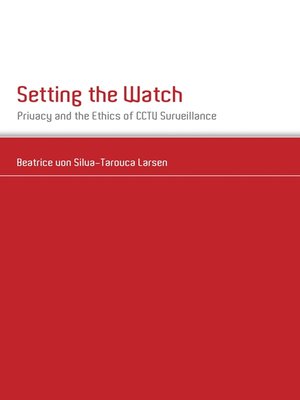Setting the Watch
ebook ∣ Privacy and the Ethics of CCTV Surveillance · Studies in Penal Theory and Penal Ethics
By Beatrice von Silva-Tarouca Larsen

Sign up to save your library
With an OverDrive account, you can save your favorite libraries for at-a-glance information about availability. Find out more about OverDrive accounts.
Find this title in Libby, the library reading app by OverDrive.



Search for a digital library with this title
Title found at these libraries:
| Library Name | Distance |
|---|---|
| Loading... |
Many liberals consider CCTV surveillance in public places - particularly when it is as extensive as it is in England - to be an infringement of important privacy-based rights. An influential report by the House of Lords in 2009 also took this view. However there has been little public, or academic, discussion of the underlying principles and ethical issues. What rights of privacy or anonymity do people have when abroad in public space? What is the rationale for these rights? In what respect does CCTV surveillance compromise them? To what extent does the state's interest in crime prevention warrant encroachment upon such privacy and anonymity rights? This book offers the first extended, systematic treatment of these issues. In it, the author develops a theory concerning the rationale for the entitlement to privacy and anonymity in public space, based on notions of liberty and dignity. She examines how CCTV surveillance may compromise these rights, drawing on everyday conventions of civil inattention among people in the public domain. She also considers whether and to what extent crime-control concerns could justify overriding these entitlements. The author's conclusion is that CCTV surveillance should be appropriate only in certain restrictively-defined situations. The book ends with a proposal for a scheme of CCTV surveillance that reflects this conclusion.







